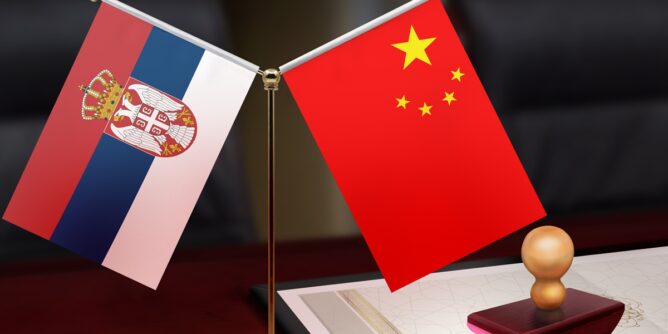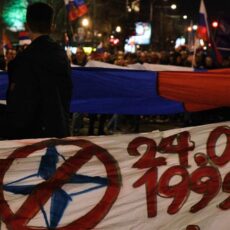
The recent announcement of a joint training exercise, code-named Peace Guardian-2025, in North China’s Hebei Province in the second half of July has garnered attention from some Western media outlets. The US magazine Newsweek, for example, claimed that the training is proof that “Beijing expands its foreign military cooperation” and not only that, but “with Serbia, one of Russia’s major allies in Europe.” It also noted that China provided an air defense system to Serbia “to protect its air space, raising concerns in the US about Serbia’s path toward European integration.”
These comments provoke a number of questions. First, is there anything wrong with two independent countries aiming to expand bilateral cooperation, including in the field of defense, particularly given that they are traditional friends and comprehensive strategic partners?
Serbia and China have much in common in the field of international relations, such as strengthening peace, stability, equitable cooperation and inclusive development. They uphold respect for the basic principles of the UN Charter, particularly the principles of sovereign equality, peaceful resolution of all disputes and noninterference in internal affairs of other countries. Their cooperation has always been motivated and directed by their respective legitimate interests, never at the cost of interests of any other country.
Second, why is the West paying such close attention to China expanding military cooperation “with Serbia, one of Russia’s major allies in Europe”? It is a historic fact that Serbia and Russia have been close allies for centuries, including during both world wars, and that Russia has helped Serbia in its most difficult periods of history. But noticeably, Serbia is a militarily neutral country and cannot be judged by military block standards or Cold War reasoning. To claim a minimum of objectivity, one should not disregard the fact that throughout history Serbia has always been the victim of aggression and occupations from the West. Ultimately, the West’s hypersensitivity toward China-Serbia military cooperation stems from the fact that it believes its long-standing desire to dominate the region is now being challenged.
Both Serbia and China are independent sovereign countries that freely choose their partners, fields and substance of cooperation, guided by their national interests and shared values. It is rather cynical to publicly sow suspicion on the motives of joint military training of the two peace-loving and international law-abiding countries. For Serbia and China, all decisions regarding their internal and foreign policies, including the areas, nature, and scope of their bilateral cooperation, are made independently. It is the legitimate right of Serbia to strengthen its own defense and to freely choose reliable partners, among which China ranks prominently. Serbia and China neither meddle in the affairs of other countries nor accept any form of interference in their policies and bilateral relations. Needless to say, they have no record of using separatism, terrorism or “human rights” to promote interventionism or geopolitical expansionism. I am convinced that both countries will continue on the path of peace, openness for mutually beneficial cooperation, inclusive development, and a just and democratic world order.
The author is president of the Belgrade Forum for a World of Equals who served as the minister of foreign affairs of the Federal Republic of Yugoslavia between 1998 and 2000. opinion@globaltimes.com.cn
Source: globaltimes.cn






